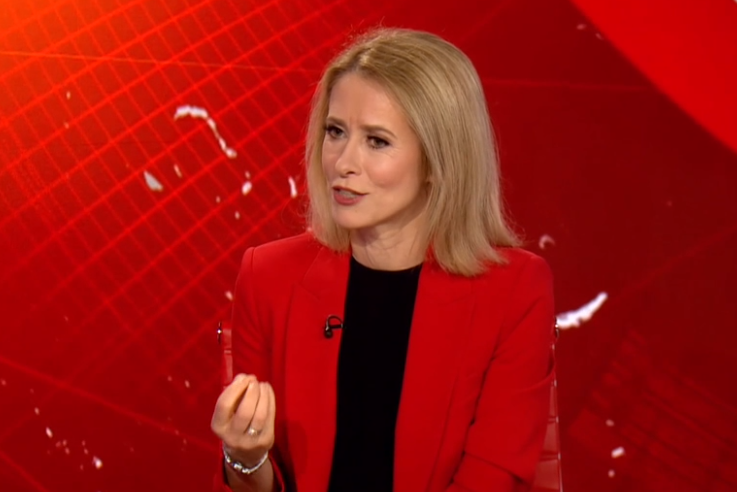Putin “afraid” of war with Nato, Estonian PM says
In a BBC interview, Estonian Prime Minister Kaja Kallas claims that Russia's President Putin is trying to intimidate the West but is himself "afraid" of a war with NATO.

Estonian Prime Minister Kaja Kallas believes that Russian President Vladimir Putin is trying to intimidate Western societies to deter their actions, but in reality, he himself fears a war with NATO countries. Kallas shared these thoughts in an interview with the BBC.
The recent classified German intelligence report indicates Russia’s potential military intentions towards NATO in the coming years, starting from 2026. The analysis suggests that Russia is preparing for a large-scale conflict with the West, indicated by the reorganization of its army, troop movements, and missile deployments in the western part of the country.
According to Kallas, although Putin is adept at “sowing fear,” his threats should also be taken seriously.
“He has been threatening nuclear war for quite some time. But it has been only words. He is very good at sowing fear in our societies. He listens to what we are afraid of,” Kallas said.
In February, Estonia’s Foreign Intelligence Service warned that Russia, preparing for a military confrontation with the West within the next decade, could be deterred by a NATO build-up, with plans to double forces along its border with NATO members Finland, Estonia, Lithuania, and Latvia.
“If we are afraid, then we start to self-deter. And that is what Putin wants,” Kallas stated.
Also in February, Estonia’s Foreign Minister Margus Tsahkna stated that NATO has approximately three to four years to bolster its defenses as Russian President Vladimir Putin intensifies his country’s “war machine.”
“We also have to think about what Putin is afraid of. And he is actually afraid of going to war with NATO. He doesn’t want that. We, of course, don’t want that either,” Estonian PM added.
Previously, German Defense Minister Pistorius urged Europe and NATO to prepare for “the worst-case scenario,” stating that an attack on NATO territory could occur within five to eight years.
Read also:
- UK Defense Secretary cancels visit to Ukraine for security reasons
- Politico: Finnish foreign minister claims Western countries shouldn’t rule out sending troops to Ukraine
- Czech, Polish FMs: Defeat Russia in Ukraine or face emboldened threat at NATO’s door



